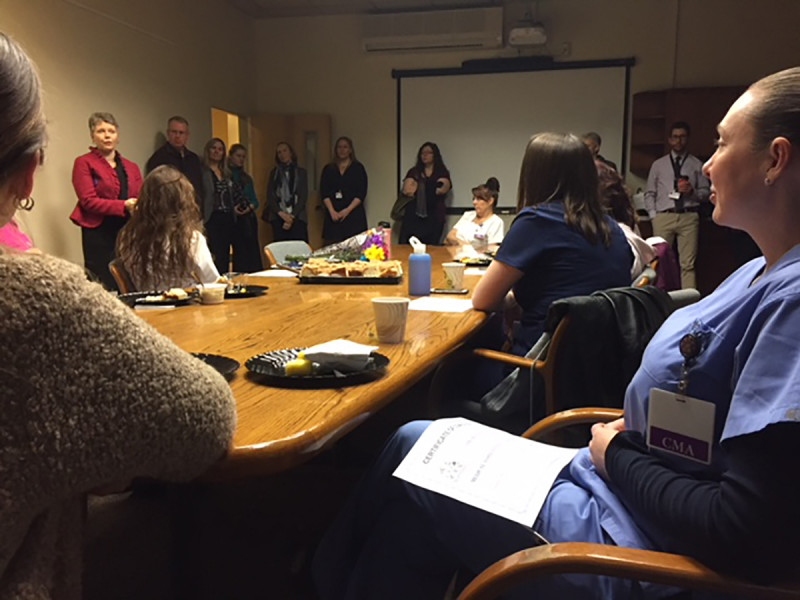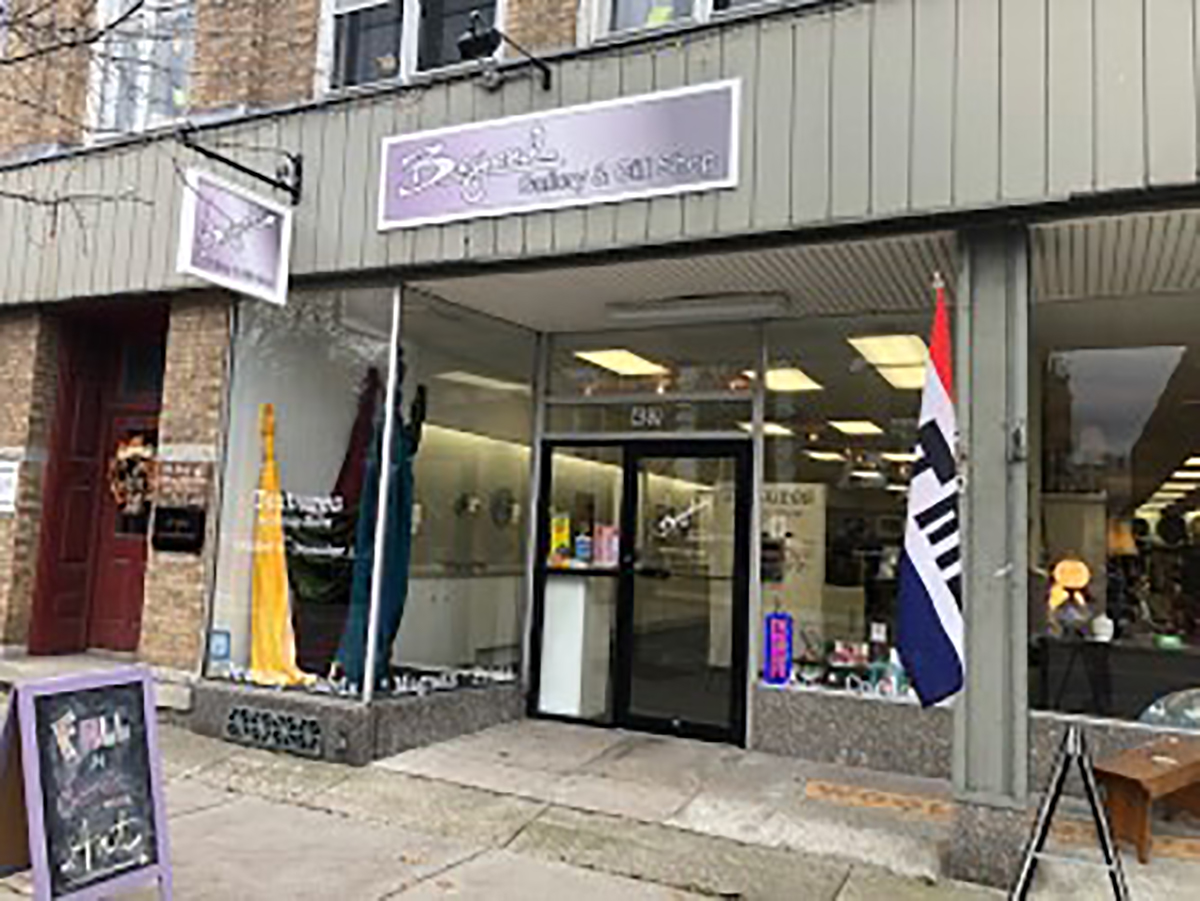
Beth Dow and her husband moved to Vermont in 2018 as part of the remote worker grant program. Their goal was to open an art gallery. Wanting to make connections in a new area, Beth took the Startup-802 course at CCV-Bennington to gain a better understanding of what it would be like to be an entrepreneur in Vermont. Dow found that the class was a “more structured way to start a business” that also helped her and her husband network in their new community.
Startup-802 was first offered as a two-course series starting in the fall of 2018. It was adapted from the Ice House Entrepreneurship class originally taught in Bennington by local entrepreneur JJ Williams of Williams Financial. It served as an “on-ramp for entrepreneurs,” said CCV Associate Academic Dean Nicole Stetson.
The program originated as a “grassroots, community collaborative conversation that started around entrepreneurship,” according to Stetson. The Bennington community had identified a need to support entrepreneurs and wanted to “play a role in defining, improving, and creating a more vibrant entrepreneurial ecosystem in the community”. In partnership with local entities, including the Bennington County Regional Commission (BCRC), Bennington County Industrial Corporation (BCIC), and local entrepreneurs, among others, CCV worked to launch the training program.
Now, just two years later, Startup-802 is expanding. Starting in spring 2021, CCV is excited to launch the Startup 802: Entrepreneurship digital credential, and the accompanying Startup-802 course in the new Flex format, an extension of the original course that allows the program to be offered statewide.
“We’ve been offering Startup-802 as a 1-credit course and what we’ve found is people wanted more,” Stetson said. From this demand, CCV developed a suite of 1- and 3-credit courses around entrepreneurship and small business development that lead to a digital credential. This new program is designed to meet community needs, allowing greater accessibility and creating opportunities to support entrepreneurial training statewide.
Each class in the credential is offered in CCV’s new Flex format. CCV has received generous support from the Northfield Savings Bank Foundation and the J. Warren and Lois McClure Foundation to develop Flex, online courses with flexible assignment submissions and multiple entry points that allow students to complete the course at their own pace. Upon the completion of a Flex course, students earn a digital badge. These badges can be stacked together to earn a digital credential.
The Startup-802: Entrepreneurship digital credential consists of eight courses, totaling 12 credits. With this digital credential students will develop the skills they need to recognize opportunities, innovate, and explore creative ideas as well as gain an understanding of the skills and competencies needed to start a business and develop a business plan. Additionally, credits earned in the digital credential can be applied toward a certificate or degree program at CCV.
Offering the Startup-802 program as a digital credential allows the classes to carry even more weight in the world. “Having a digital credential now is valuable…it clearly states what the learner’s knowledge and skills are, so they’re attached to some very clear competencies that people who earn them can share,” Stetson said.
The new credential is designed to increase accessibility and meet the needs of a diverse population. Robert Braathe, the faculty member who teaches the Startup-802 course, says the course “gives you a foundation from which you can explore any idea, whether it be launching a business, launching a new product, or just launching a new part of your life.” Community members, future entrepreneurs, business owners, college students, and high school students are among the broad population that this program aims to serve. According to Stetson, “the value of the credential is going to depend on the participant and their goals.” Students can earn and stack the credential in their educational pathways, and community members and business owners can gain valuable skills to enhance their work.

Beth Dow used what she learned in Startup-802 to open the Beyond Gallery in Bennington. “It really helped us with an overall view of what it means to start a business,” she said. “They really let you focus on your idea, your dream…we were able to do the entire course revolving around what we had hoped to do one day.” Dow finished the course in March of 2019, and by August the Beyond Gallery had opened its doors. “It really gave us that push and that drive and motivation to see how we could fit this gallery into our current lives and make it a part of our every day,” she said. “I don’t know if we would have been able to get as far as we did so quickly without the course.”
According to Bill Colvin, assistant director at the BCRC, Dow’s business is just one of many that have opened as a result of the Startup-802 program. “We had at least a half dozen local businesses launch from entrepreneurs that have come through the Ice House and now Startup-802 program. So we have seen the success and the possibility…there is real-world benefit.” Colvin said that when the program started, the hope was that it would serve as a model for the rest of the state. Now, with the new Flex offering and digital credential, that goal has been made possible. Colvin hopes that more communities statewide will be able to benefit from small business growth as this program expands.
Stetson reiterated that CCV’s goal is to meet the demands of Vermonters. “We’re being responsive, we’re expanding our programs, and we’re providing broader and better opportunities for participants to gain really important skills that they can bring back to their communities and into their workplaces,” she said. “This is an important ingredient in supporting economic development and sustainability in our state.”



